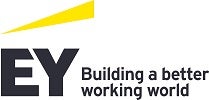
Sponsored by:

When considering how to transform your finance operations, it can help to think through the five principal delivery models available.
In brief:
- As the role of the finance function is evolving, new operating models are emerging, and many CFOs are exploring the options for transformation
- Finance operations, such as accounting, tax, payroll and management reporting, are key enablers that can either be outsourced or run inhouse
- We outline five different operating models for finance operations and their practical advantages
Prior to the pandemic, traditional business models were already feeling the pressures of a shifting working world. CFOs have long been juggling with how to do more with less, have better access to talent, improve efficiencies, extract value from data, take advantage of new technologies, and keep up with regulatory obligations. COVID-19 has accelerated the effects of these forces, highlighting an increasing need for agility in order to respond to an unpredictable business environment. No matter what the trigger is for transforming your finance operations, it can help to begin by identifying the various delivery model options available to you.
Fully managed service
This alternative to building out your own finance operations involves a third-party taking on the majority of these processes, such as accounting, tax, payroll and reporting. Providers vary, but the good ones aren’t one size fits all, these will offer a tailored service and work closely with your team to define the optimum scope and roles between the provider and your in-house team. This delivery model would also include access to a finance and accounting technology platform.
How well do you really know your competitors?
Access the most comprehensive Company Profiles on the market, powered by GlobalData. Save hours of research. Gain competitive edge.

Thank you!
Your download email will arrive shortly
Not ready to buy yet? Download a free sample
We are confident about the unique quality of our Company Profiles. However, we want you to make the most beneficial decision for your business, so we offer a free sample that you can download by submitting the below form
By GlobalDataAdvantages of this model
- A quality provider will ensure day-to-day operations are run using best practice processes and robust controls
- You can tap into the providers investments in technology and their pool of talent; choosing the skills and experience you require
- Management reporting will be accurate and readily available
- You can access specialist data analytics capabilities that provide new, or deeper insights across your financial information
- The challenges of recruiting, training and retaining staff are massively reduced
- Costs are controlled and easily forecast
- The provider takes care of technology updates and maintenance You can access the latest finance and accounting systems without significant people, Opex and Capex investment
- Supplier management is simplified with a single contract to cover multiple aspects of finance operations
- All of the above frees-up senior management’s time to focus on strategic priorities and building the business
Managed service using the company’s own accounting technology
All aspects of a fully managed service apply here, other than those relating to technology and finance systems. In this model, your company’s current Enterprise Resource Planning (ERP) system is fit for purpose, and the provider delivers their managed services using this technology.
Advantages of this model
- Provided that inhouse technology systems are fit for purpose then the majority of the benefits related to fully managed services (excluding technology) apply
- This model is particularly relevant where finance systems are deeply integrated within wider corporate systems, such as Resource planning, CRM, supply chain
Interim managed service
It is possible to work with a third party to run finance operations for a temporary, and flexible, time period. This can be either using their technology, or your own inhouse finance systems.
Advantages of this model
- You can simplify one aspect of a major business transformation by removing the management of finance operations from competing internal priorities
- You can also focus your team on creating value and growth while the outsourced finance team ensures business continuity
- Risk is mitigated and there is access to critical decision support data and reporting capabilities during transformation
- The service can be used as an incubator, where finance operations are reconfigured and improved by the provider and then handed back
- Services can scale up and down very quickly and easily
Building inhouse
Organisations will most likely consult with advisors and system integrators to design, implement, test, provide training in order to then deploy the new operating model. It is common in larger organisations for some aspects of compliance and reporting to be outsourced (see below for hybrid).
Advantages of this model
- The key advantage for this model relates to managerial control, and suits businesses and CFOs that want to retain jurisdiction across all aspects of their operations
- All processes and data remain the intellectual property of the business
- You can design the finance infrastructure to support extremely complex business requirements, especially where it interconnects with wider areas of the organisation
- This model enables the business to ensure their culture and purpose permeates throughout the organisation, right down to back-office processes
Hybrid options
Alternatively, you achieve an optimum mix of inhouse and outsourced operations. Specific areas such as accounts payable and compliance and reporting might be handled as a managed service, and all other day-to-day operations are retained inhouse. Or the converse might be true where the majority is outsourced, and a handful of specific activities are retained, such as project accounting.
Advantages of this model
- You can outsource the non-core aspects of day-to-day operations that are swallowing up your teams’ time. They can then focus on the key responsibilities that are retained
- Non-core/subsidiary business units can operate with the agility they need to develop and grow rapidly. This is particularly relevant when large organisations are effectively incubating smaller innovative businesses that could get bogged down in overly complex Group processes and systems
- The managed service aspects of a hybrid model can be quickly deployed
Four critical transformation questions for CFOs
While every business is different, and every path to reinvention has its own objectives and challenges, there are some questions that nearly all CFOs are grappling with. As you consider each of the operating models above, it can help to reflect on how each solution could help you address these core challenges:
- People: Is the access to skills and experience meeting the business’ needs?
- Technology: How will the investment be funded and when will it pay back?
- Processes: How will the organisation achieve and retain best practice operations?
- Timing: How quickly are changes required and what will be the impact on operations?
Summary
The increasing volume and complexity of finance function activities can distract leaders from building better businesses, and the pandemic has forced CFOs to be more agile in the face of unexpected challenges, creating a greater need to transform the finance function. Broadly speaking the five principal delivery models need to be though through, to determine which, across the spectrum of inhouse or outsourced solutions for accounting, tax, payroll and management reporting is suitable for your particular needs.
To find out how EY Finance Operations can help you adapt and stay agile in a rapidly changing world, book a time to speak with one of our team.


